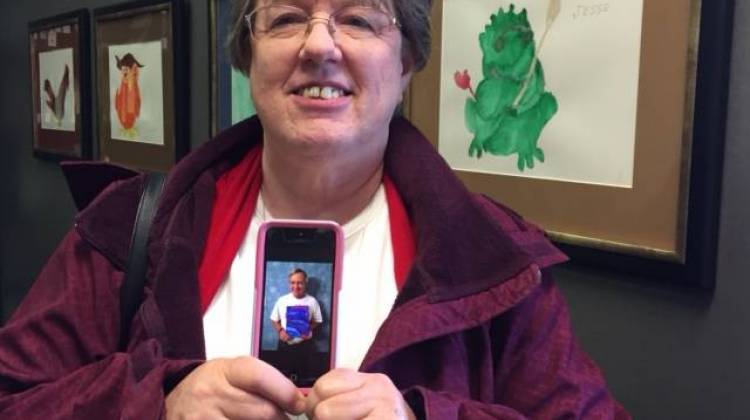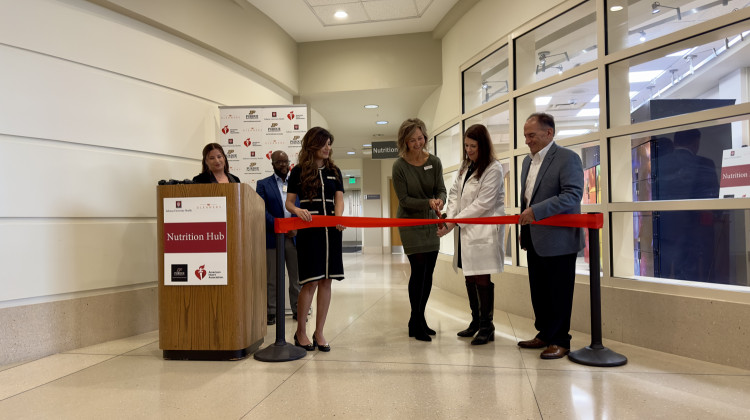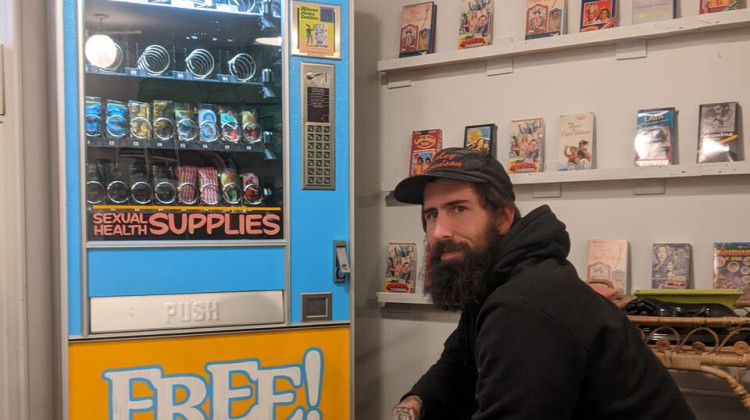INDIANAPOLIS - When it comes to Alzheimer’s, more than half of all care is provided by unpaid and untrained caregivers… many of whom have questions. A new app could put answers right at the fingertips of people like Sheryl Chamberlain, who has only had a smart phone for two years and has quickly learned to use it as a lifeline.
"I do emails, Facebook, my bank account, Pintrest, coupons and online stuff." Explained Chambelain.
Chamberlain’s husband Roger was diagnosed with Alzheimer’s disease three years ago when he was 59. He’s one of over 100,000 Hoosiers living with the disease and now she is his primary caregiver.
Sheryl Chamberlain is exactly the type of person the new Facebook is aimed at. She is one of 330,000 unpaid Alzheimer’s caregivers in Indiana.
Assistant professor at the IUPUI School of Informatics and Computing Erin Brady says the idea for the app was developed when three researchers from three different schools put their heads together.
"We all kind of realized that we have an overlapping interest in the ways technology can be used for social good, to help people to provide care and services. It was obvious that we all believed in that underlying principle and we could use it for something cool." Said Brady.
The other two researchers are IU School of Social Work Assistant Professor David Wilkerson at the and Gerontology Psychiatrist with the IU School of Medicine Dr. Daniel Bateman . The idea for the project was based on a similar program for visual impaired people that Brady helped create.
Social-microvolunteering is different from other support groups you may join on Facebook because it provides access to the group and all their friends, explains Brady.
"Basically the idea is that you’re leveraging your own social network and that of other people, so you have access to a lot more people who might be online at any given time…. to work together as a group and figure out what their needs are." Explained Brady.
Bateman says the team hopes to explore this by introducing different questions to three trial groups.
"An example of an informational support question might be “My dad continues to drive and he has Alzheimer’s disease, what should I do?” and an example of emotional support question would be “My mother has Alzheimer’s disease and she keeps waking up in the middle of the night and I’m so stressed, how should I handle stress?”." Bateman explained.
The initial trial is being supported with a $30,000 grant from the Regenstrief Institute and should start in the next couple months. About twenty people will answer and pose questions that are designed to determine if the app is more suited to certain support needs.
Bateman says the idea is to tap into the wealth of knowledge that experience brings.
"A lot of this info is avail and the people who are the most resourceful and have the best answers are not physicians or nurses, they are the people who have been through it… the caregivers." Commented Bateman.
He says the app would provide an inexpensive and easy way to connect caregivers like Sheryl Chamberlain who says she would appreciate that.
"I’m not one that I’m bashful and I share it with everybody that they can learn too. I figure if I can’t fix my husband but I can share and spread the awareness of all the little different things that I’ve learned." Chamberlain said.
The hope is that the project could be used to develop a more extensive application outside of Facebook to support caregivers. When it will be available more broadly.
 DONATE
DONATE







 View More Programs
View More Programs

 Support WFYI. We can't do it without you.
Support WFYI. We can't do it without you.